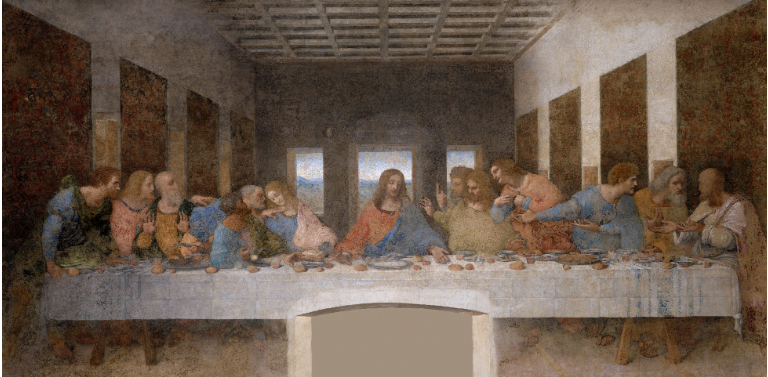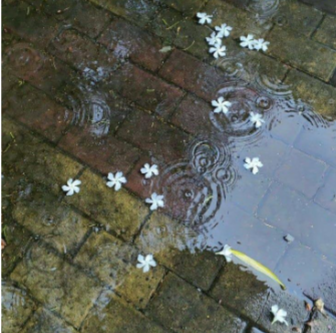Simply being human is worth it all
- Kiara Aggarwal
- Jun 1, 2025
- 4 min read
By Irintsoa Rakotomamonjy
It all started with the sunlight pools on my hardwood floor, one afternoon. Three goldfinches
paced across my window bar, whistling a tune I’ve gotten used to. Through the spaces,
branches rustled against the glass, as if knocking to check on me. This was nature’s call to
join them outside. To break the mundane that afternoon, I found myself dragging my feet
further within each step.
While the sun begun to dip below the horizon, I was joined by fellow pedestrians – some in a
rush, some sedately. The world around was bustling with noise and chaos, as people drove
home after work, but I somehow remained untouched by it. Across the road, a familiar
melody swayed in the air from a car parked nearby. It was John Coltrane’s My one and only
love. I started humming to the tune, one that infused reminiscent of a life once lived.
“…I want to live and feel all the shades, tones and variations of mental and
physical experience possible in my life. And I am horribly limited.” -Sylvia Plath

Plath’s quote transcribes what it felt on the sidewalks. Before that moment, I was fanatically
stuck in a swirl of news and updates. The world’s atrocities were a weight settling in my
chest. I was convincing myself that I had to carry this weight with and for those who can’t. At
some point, it felt pathetic to feel too deeply, especially when you cannot fully grasp all that
is thrown at once. Even writing this paragraph enables guilt to creep in, as if I had the
privilege to complain about what I see while others cannot get out of a fight that they never
chose to be in.
I was left questioning if my feelings were vain. It was as though my actions were lethargic
and misaligned with important causes. And as much as I always intended to step away from
the stimuli, the truth is, tuning down the noise doesn’t erase reality. You cannot mute the
children's cries, nor cover the sky of flying missiles. The messages and emails still remain,
even as you switch to silent mode. So, no, this is not the usual “turn off your phone and step
outside,” although perhaps many of us need that. It’s a call to turn inward – asking yourself
what you can carry, what you can give, and how to hold space for what matters without
drowning in the expectation that you must hold it all. Not out of duty, but merely out of our
humanity.
Humans. A capsule of feelings. A storage of love.
While we are succumbed to media’s idealization of being human, we tend to forget what it
truly means to be one. That day, when nature itself called me outside, it dug out something
long buried and left untouched since quarantine, five years ago. A chunk of hope. It revealed
itself in many ways: winter’s apricity penetrating a chilled skin; the weary stranger who still
musters a smile; a tulip rising in a place you thought was too deserted; the taste of milk and
honey soothing a sore throat; the Arab neighbour’s children shouting “Yalla, nerkod! (let’s
go)” as they gather to play; the feel of your grandma’s hand in yours; the crescent moon
hanging in the afterglow. Suddenly, feeling everything deeply is the hope.
Our humanity is what they are trying to take away from us – urging us to outsource our minds
to the rush of time and the noise they amplify. But it’s always there, waiting for those who
slow down enough to see it. And to see it, to feel it, is rebellion in itself. Orwell has been
famous not just for his sharp commentary, but because of his ability to expose the quiet
mechanism of control that shape society. Yet, among his most quoted warnings, there’s a line
in 1984 that I find underrated:
“If you can feel that staying human is worthwhile, even when it can’t have any
particular result whatsoever, you’ve beaten them.”
Orwell exposes the discrete theft of our essence under the ruling system of how control does
not only dictate actions but reshapes the very instinct to feel. He wrote of the proles, a
minority group in Oceania (fictional country), as an “inert force which would someday spring to life and regenerate the world,” not because they were rebelliously loud, but because they
had the ability to experience life without calculation of fear. Warm embraces, shedding a tear,
singing aloud, speaking words to a dying man – these sounds like helpless gestures, but could
have value in itself, especially in that world were citizens are constantly under surveillance.
In that raw, unfiltered humanity, however dismissed or overlooked, is where we plant the
seed of revolution.
Yes, we are horribly limited. We cannot carry it all, cannot mend every wound, cannot
always be who we wish to be for others. We stumble, we fall short, we endlessly search for a
hope that seem too far away. But what if it is right outside your window? What if you even
held a tiny light in your hand – the ability to love, to spread joy, to mourn with those who
mourn, to offer kindness in even the smallest ways? If the world were ending tomorrow, I
hope we’d die being an essence of hope while we could.



Comments